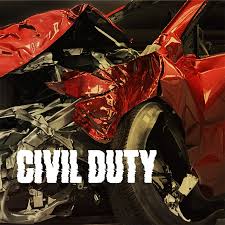In the last year the profile of Brooklyn’s Anthony Parasole has exploded – fuelled in part by his well-received residency at Berghain – but also lain on a foundation of years of work. Launched in 2012, around the same time as Parasole’s relationship with Ostgut was in the process of deepening, the Corner, while not his first label project, has developed to become the one that realises his vision most completely. A deeply New York-derived project both in image and content, this foreignness in relationship to the worldwide techno scene and some practical, on-the-ground issues held the label back for some time in spite of releases – Fred P., Adam X, Shawn O’Sullivan – which, even considering their single-minded, dancefloor-oriented approach, have been amongst the better techno records to emerge from New York since the project began. Parasole did something to remedy the oversight with a compilation 12", Bloodlines, featuring outstanding tracks from Silent Servant and Marcel Dettmann. With the self-titled debut album of duo Civil Duty, the first long-player from the label and unabashedly the weirdest release yet there, his attention-garnering continues as does the quality streak.
Previously known only from a single track released on the label and a few scattered live appearances including a recent Berghain set, Civil Duty’s two members will be familiar to close followers of fringe dancefloor music. They’re two of the most consistent and notable producers to come so far from the experimental wave of new American talent led by L.I.E.S., and importantly they’re also two of the most experienced, each with multiple past projects in different musical directions that remain evident in Civil Duty. Shawn O’Sullivan, who previously produced a 12" for the Corner, has been recently emerging to greater notice as half of Further Reductions, solo under his own name, Vapauteen, or 400PPM, and has significant history in darkwave trio Led Er Est. Most familiar as half of Mutant Beat Dance and Streetwalker, Beau Wanzer has also received a spate of solo success courtesy of L.I.E.S. mostly, and he recently started an eponymous label for his own productions.
Compared to Wanzer’s jacking industrial-inflected tracks or new wave-based weirdo experiments, which found their ideal outlet on L.I.E.S., Nation and Diagonal, or the nihilistic noise-laced techno that forms the centre of O’Sullivan’s ouvre, there’s a middle ground struck here, but it is not a pedestrian one. The duo iron out the wrinkles of each other’s sounds for the most part, leaving a kind of distilled techno that remains heavy on personality but puristic in approach. It’s easy to see what Parasole saw worthy in these tracks, themselves never short on personality. The duo show a predilection for repetition and clanging reverb sculptures, and there’s obvious wit in many of the track titles (‘No Dexterity’, ‘Belial’s Night In’, ‘Pro Emitic’) that draws attention to the fact they’re hardly playing the game po-faced.
The duo take little time spelling out the basics of their hardware-focused approach and their indifference to conventional techno ideas. It only takes until the see-sawing, metallic synthesiser of the second track, ‘Microtome Massacre’ to get weird, and once there, it gets fearless, with ‘Mindhives’ offering another compelling example of haunted machine music. ‘Spiderbites’ and ‘Fischkopf’ also stand out for strangeness: it’s still techno to be sure, but the tinkling keyboard runs and half-time accents of the former do their best to distract the listener’s attention from the inexorable, martial percussion, while the latter’s whirring industrial noises, samples of screeching feedback, and 170bpm+ tempo would deter all but the most searching DJs from handling it. These two pieces are predictably buried on in the C-side, a traditional placement for wacky experiments, but perhaps what is most remarkable about them is the way something as simple as removing the kick foregrounds sounds that are in reality present throughout the record.
With similar approaches, similar track lengths, omnipresent distorted kicks and minimalist structures, the remaining tracks would have a certain tendency to blur together, but the smart sequencing of the album separates them far enough to keep the details distinct. All of them are almost certainly completely improvised and, in the cliché, ‘raw’, but compared to the smeared nature of tracks released by Opal Tapes, L.I.E.S., and many other smaller labels, there’s a refreshing precision to this music and clear structuring to even the wildest moments. This fact makes them effective weaponry for a DJ like Parasole, and the tidiness of the production insures that, rather than losing impact on a club system like many of the hazier ideas circulating on these young labels, they rip through bodies knife edges intact.
While the separate work of Wanzer and O’Sullivan occupies the craggier portions of their respective discographies, Civil Duty proves that there is virtue in trimming edges and distilling approaches. Even given the relatively succinct scope of the record, there’s plenty of character here, and it’s a character distinct from more mainstream techno at home on The Corner, where the two sit easily alongside each other. Anthony Parasole is definitely onto something here: in the emerging world of improvised techno, it’s rare to find something as sharp or well-informed as this.
<div class="fb-comments" data-href="http://thequietus.com/articles/18256-civil-duty-civil-duty-review” data-width="550">


